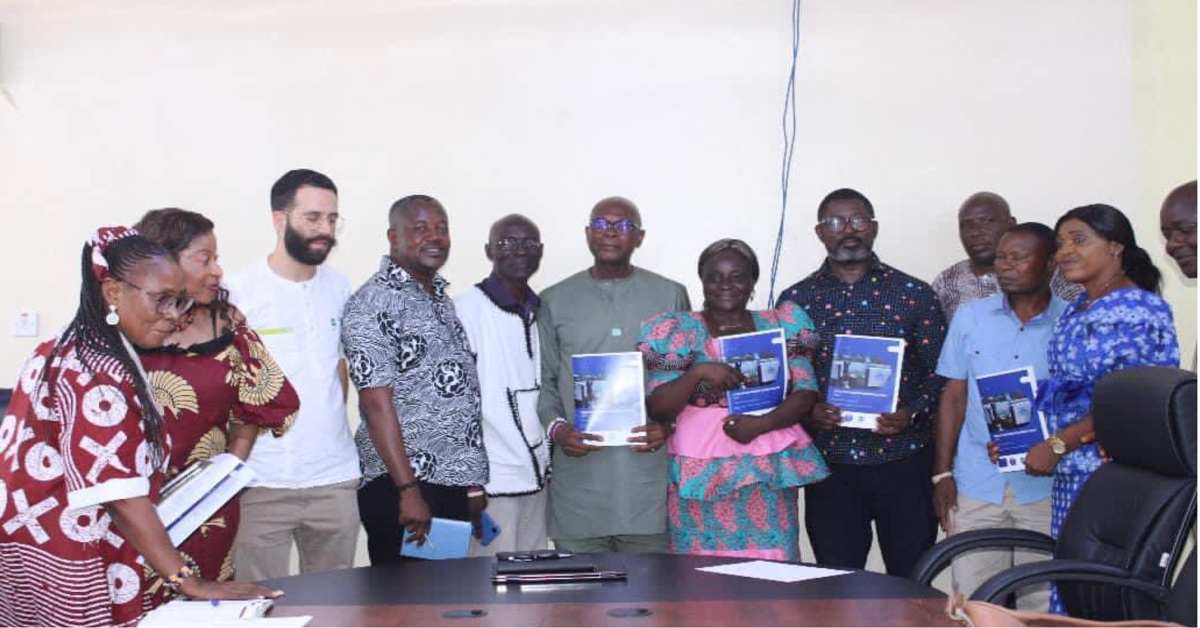The National Partnership for Social Accountability (NPSA) led by the Institute of Governance Reform (IGR) handed over the current State of Education Report 2023 to the Ministry of Basic and Senior Secondary Education (MBSSE).
The program held at the MBSSE conference room was supported by the European Union and witnessed by the EU delegation, CSOs, and representatives from the MBSSE.
This Year’s Report is created by the National Partnership for Social Accountability, a network of 45 local civil society organizations as an embodiment of citizens’ feedback on the investments the Government of Sierra Leone (GoS) households, and development partners are making to improve basic and senior secondary school education in Sierra Leone.
Andrew Lavali, the Executive Director of IGR said in the last five years, GOSL and its partners embarked on a transformative journey to enhance education quality and accessibility through the Free Quality School Education (FQSE) initiative. To implement the FQSE, government is said to have allocated (starting Financial Year, 2020) an unprecedented 22% national budget to education and introduced a Radical Inclusion Policy to accelerate the reach of education to excluded groups and communities.
He noted that this 2023 report delivers an evaluation of the strides Sierra Leone is making in key areas, as well as identifies challenges and opportunities for improvement. A mixed-methods approach was also said to have employed by the NPSA, combining quantitative and qualitative research methods.
The research included document reviews, in-depth interviews with key stakeholders, and surveys conducted among households and school staff.
Random sampling identified 2,400 households and 400 schools across the country, providing robust data. Among the key findings of the report are that one in five parents identified the repair/rehabilitation of school infrastructure as the most pressing issue (21%), while 16% pointed to poor infrastructure such as gender separate toilets.
Furthermore, textbook availability varies significantly by district. Currently, Western Urban district has the highest availability at 79%, while Karene and Falaba districts have the lowest availability with only 55%. On a national average, the availability of textbooks stands at 37%. Seven in every 10 parents (71%) confirmed that teachers were always in schaol during the last term with 20% indicating teachers were sometimes absent. An overwhelming 91% of parents were satisfied with the Leaching provided, while 75% believe that teachers provide extra care and support to pupils.
However, at least 20% of parents complained about requests for unauthorized gifts by teachers. Nationally, 99% of schools reported receiving routine monitoring visits from the District Education Office (DEO) supervisors inspectors and Local Council (LC) representatives demonstrating a strong commitment to maintaining educational standards and compliance with policies.
Manuel Muller, the European Union Ambassador to Sierra Leone said “To complement efforts of government on education around the world. We feel that the implication of civil society in the definition and follow-up of the implementation of the sector policies is an important factor in ensuring proper public service delivery. Therefore, I will like to congratulate the National Partnership for Social Accountability Network for their contributions to this report.”
According to the Minister of MBSSE, Conrad Sankey, such a report is a reflection of what they are doing as a Ministry.
Yatta Kanu, Chief Education Officer Professor underscored that there are no discrepancies in the report in relation to their areas of interest, describing it as well conerete study that was done.
Among the key recommendations of the report is to harmonize the approaches related to teacher conduct, the Teaching Service Commission (TSC) should develop and enforce å ‘compliance adherence system’ informed by the teacher code of ethics, which should be signed by all recruited teachers in government-assisted schools.
Establishing and enhancing Water, Sanitation, and Hygiene (WASH) infrastructure in schools is crucial to addressing significant needs in basic facilities like toilets and water.











